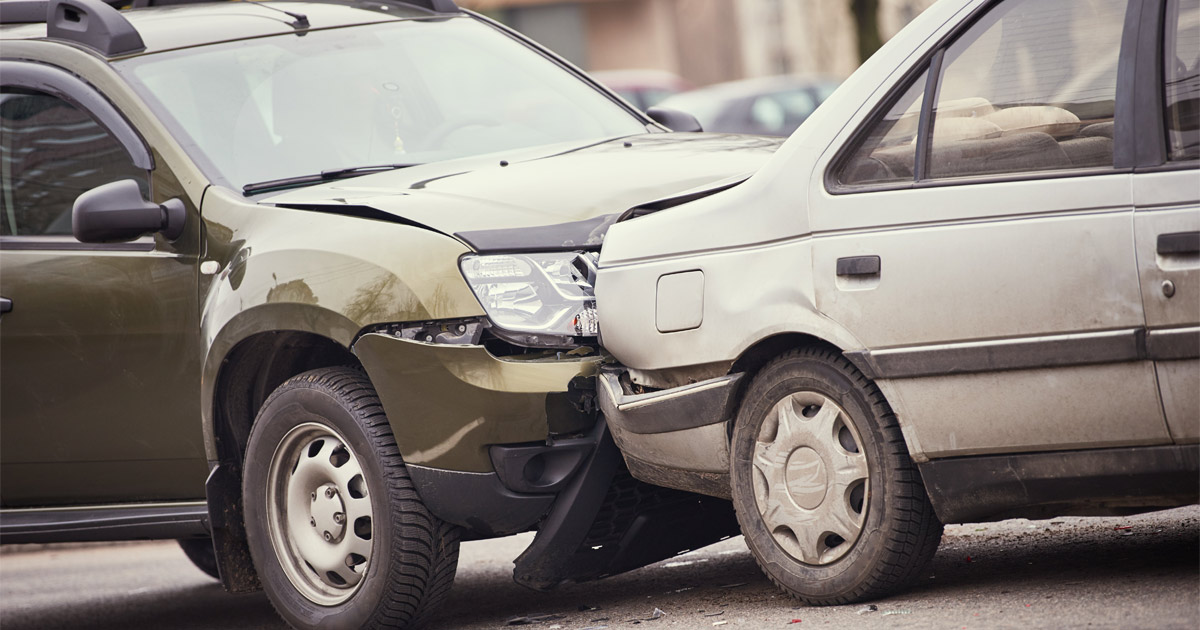Tailgating is one of the most common causes of car accidents. In fact, according to the National Highway Traffic Safety Administration (NHTSA), over 20 percent of all car accidents each year involve rear-end collisions caused by tailgating. However, most of these accidents could have been prevented if the tailgating motorist had left a safe distance between their vehicle and the car in front of them. While some tailgating accidents are relatively minor fender benders, others can be quite serious, mainly if the accident occurs on a busy highway where vehicles travel at a high speed. If you or someone you know has been seriously injured in a tailgating car accident, it is highly recommended that you contact an experienced car accident lawyer as soon as possible.
What Is Considered Tailgating?
Tailgating is following the car in front of you, too. However, it is important to understand exactly what is considered too close to ensure you maintain a safe following distance at all times. The rule of thumb that motorists should follow is the three seconds rule, which means that you should always leave a minimum of three seconds of driving time between you and the vehicle you are following, which can be measured by doing the following:
- Select a stationary object on the side of the road, like a traffic sign or a telephone pole.
- When the vehicle’s rear bumper in front of you clears the object, start counting.
- Stop counting when your front bumper reaches that object. If it is under three seconds, you are following too closely, so you should slow down and increase your following distance.
Why Is Tailgating So Dangerous?
If a motorist is tailgating another vehicle, they will be less likely to be able to slow down or stop in time to crash into the vehicle in front of them. This is particularly true if motorists drive on a highway with a 60 mph or higher speed limit and if inclement weather causes hazardous road conditions. The following factors are some of the main reasons why tailgating is so dangerous:
- Reduced stopping distance: Tailgating significantly reduces the distance needed to bring your vehicle to a complete stop. The larger your vehicle, the more road space you need to stop.
- Reduced perception time: This is the amount of time a motorist needs to recognize a potential hazard on the road. Tailgating reduces this time.
- Reduced reaction time: This is how long a driver needs to recognize the hazard and either apply the brakes or move into a different lane. When a driver is tailgating, they have significantly less time to react.
Another factor that can make tailgating dangerous is that it can cause drivers to become aggressive or resort to road rage, which can quickly escalate to a serious situation if the tailgating driver becomes enraged. In extreme cases, tailgating can cause a multi-vehicle accident involving serious injuries and fatalities.
How Can I Avoid a Tailgating Accident?
Like many types of car accidents, tailgating accidents are preventable if motorists follow the rules of the road, including leaving enough distance between you and the vehicle in front of you, mainly when inclement weather causes hazardous road conditions. If you notice that the motorist behind you is tailgating, the following tips can help you avoid a severe tailgating accident:
- Leave plenty of space between you and the vehicle in front of you. This will give you enough space to slow down or come to a complete stop if the vehicle in front of you suddenly slows down or stops. In addition to the three-second rule of thumb, you can allow a distance of ten feet for every increment of 10 mph you drive. If you are driving 50 mph, leave 50 feet of the following distance.
- Maintain a safe speed. You may not be able to control how other motorists drive, but you can ensure that you drive at a speed that allows you to slow down or stop if the car in front of you hits the brakes. Reduce your speed during inclement weather or if other conditions make the roads hazardous.
- Keep in mind that larger vehicles and motorcycles require a greater distance to stop. If you are following a large truck or a motorcycle, make sure you distance yourself more from the other vehicle. This is particularly true for large commercial trucks. If you follow too closely and the truck driver hits the brakes, you could crash into the truck or even slide underneath the back of the trailer, which can have devastating consequences.
- Double your following distance during inclement weather. Rain, snow, and ice can cause tires to lose traction, leading to skidding and potentially losing vehicle control. Doubling your following distance can help prevent a tailgating accident.
- Stay in the right lane. This lane is for slower-moving traffic. Motorists who are more likely to tailgate tend to drive in the left lane, where traffic moves faster.
- Switch lanes. If you are being tailgated, move to the lane to your right and allow the motorist to pass you.
Who Is Liable for a Tailgating Accident?
If you are rear-ended by a motorist who was tailgating you, the person who strikes the rear of another vehicle is almost always considered at fault. While there are exceptions to this rule—including if an aggressive driver is rear-ended after cutting off another driver—you will likely be entitled to financial compensation. A highly skilled car accident lawyer will assist you with this process and protect your legal rights.
Our Cincinnati Car Accident Lawyers at Wolterman Law Office Represent Victims of Tailgating Accidents
If you were injured in a tailgating car accident, contact our Cincinnati car accident lawyers at Wolterman Law Office as soon as possible. We will assist you with the claims process, protect your legal rights, and pursue the maximum financial compensation you deserve for your injuries. To schedule a free, confidential consultation, call us today at 513-488-1135 or contact us online. Our office is located in Loveland, Ohio, where we serve clients in Hamilton County, Fairfield, Norwood, and Forest Park.


